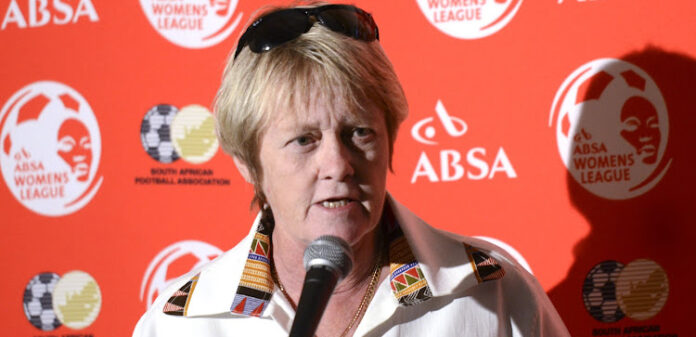The national teams of the South African Football Association (Safa), including the senior women’s team Banyana Banyana, are gradually losing their competitive advantage on the global scene, primarily as a result of the association’s poor coordination and planning.
Just a few weeks ago, the national Under-20 men’s team, Amajita, jetted off to Chile for the Fifa Under-20 World Cup with minimal preparation.
The tournament, held from September 15 to October 19, exposed the cracks in Safa’s planning once again.
Despite all odds, Amajita overcame a 2-1 loss to France in their opening match to advance beyond the group stage after finishing second.
They achieved impressive victories with 5-0 and 2-1 wins over New Caledonia and the US — but were eventually knocked out in the round of 16, losing 3-1 to Colombia.
The national Under-17 men’s team has also qualified for the Fifa World Cup scheduled for Qatar in a few weeks’ time, but thus far they have not played any match in preparation for the competition.
In preparation for the World Cup, Amajita played only two friendly matches — against two national division clubs, Gomora United and Pretoria University — before departing for Chile, where they arrived just four days before the tournament began.
To make matters worse, they were reportedly the last team to arrive at the venue. Banyana are also feeling the effects of Safa’s disorganisation.
Former Safa assistant technical director Fran Hilton-Smith has raised concerns over what she calls a “crisis” in the association’s management of national teams.
“Safa’s national executive committee needs to come around the table and fix this mess before it’s too late,” said Hilton-Smith, who helped lay the foundation of the current Banyana team.
Banyana draw against the DRC
Hilton-Smith emphasised that the executive must urgently address the coaching situation and provide stability if the women’s team hopes to qualify for the 2026 Fifa Women’s World Cup scheduled for Poland.
On Wednesday, Banyana played their first Women’s Africa Cup of Nations (Wafcon) qualifier away against the Democratic Republic of the Congo (DRC). The match ended in a 1-1 draw.
The team was without head coach Desiree Ellis, who has been working on a month-to-month contract for years. In her absence, assistant coach Thinasonke Mbuli took charge of the squad.
“Unlike the previous Wafcon in Morocco, where Banyana finished third, this edition — which started on Wednesday against the DRC — is extremely crucial because it forms part of the qualifying process for the upcoming World Cup,” Hilton-Smith explained.
“If Banyana fail to qualify for this Wafcon, then they can forget about participating in the 2026 Fifa Women’s World Cup,” added the 72-year-old, who is now a motivational speaker following her retirement from Safa in 2019.
Banyana will host the return leg against the DRC on Tuesday, and Hilton-Smith hopes that Safa will resolve the team’s coaching uncertainty before then.
Morocco will host the Wafcon finals next year from March 17 to April 3.
Several senior players, including Jermaine Seoposenwe, have also pleaded with the association to urgently address coaching and other issues affecting the team in order to restore stability and focus within the squad.



